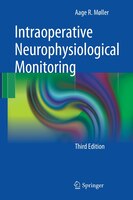The last few years have brought about many changes in the field of marine and freshwater toxins, with advances in analytical technology and the realization that these toxins are a global issue. Offering a complete reference guide, Seafood and Freshwater Toxins: Pharmacology, Physiology, and Detection, Third Edition addresses all aspects of the social and scientific influence of phytotoxins, from legislation and monitoring to new drug development. Covering many new topics, the book examines three main aspects: monitoring of toxins; chemical, mechanistic, and toxicological diversity; and detection technologies. New to this edition: 35 new chapters and 5 updated chapters A focus on state-of-the-art methodology Coverage of new technologies to cultivate algae and to identify, isolate, and quantify toxins Regulatory changes Climate change evidence Expanded information on toxicology Part I of the book includes an overview and reviews general issues related to toxin detection, ecology, and diversity, and effects of climate change. Part II covers impacts of toxins regarding epidemiology, toxicology, economics, and surveillance. Part III explores available detection technologies, such as functional assays, biosensors, mass spectrometry, nanotechnology, and more. In addition, standard reference materials for toxins are discussed. Parts IV to VI provide detailed descriptions of toxin chemical diversity, biological sources, and modes of action. Part VII addresses the use of toxins as starting points for therapeutic drugs for cancer, neurological disorders, and for novel antibiotics.















